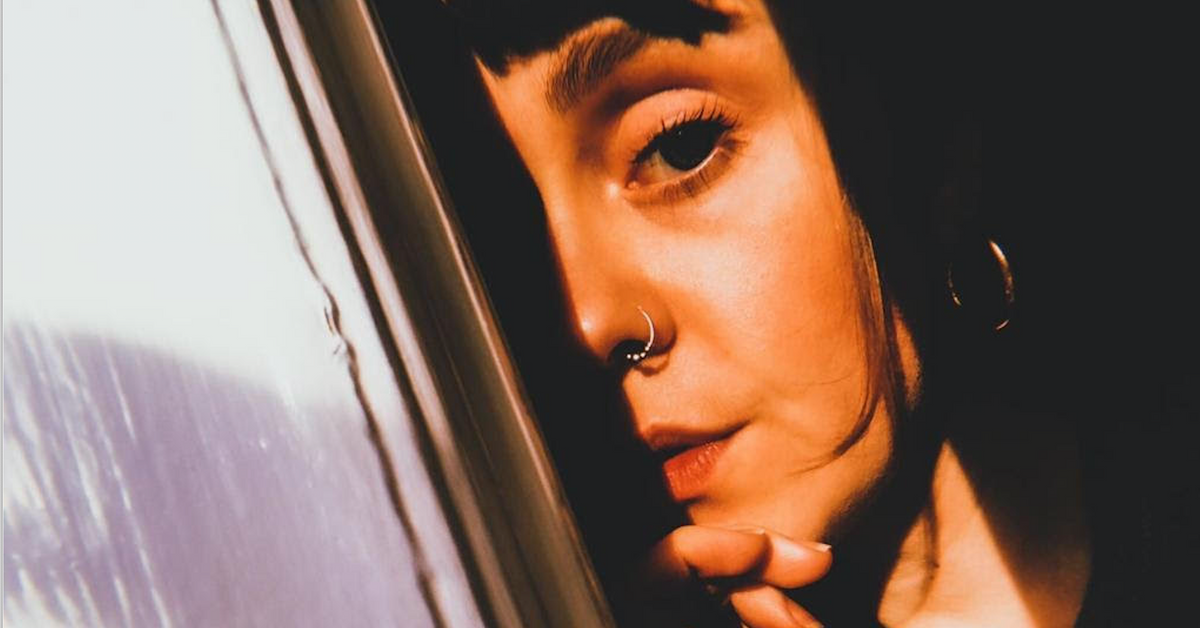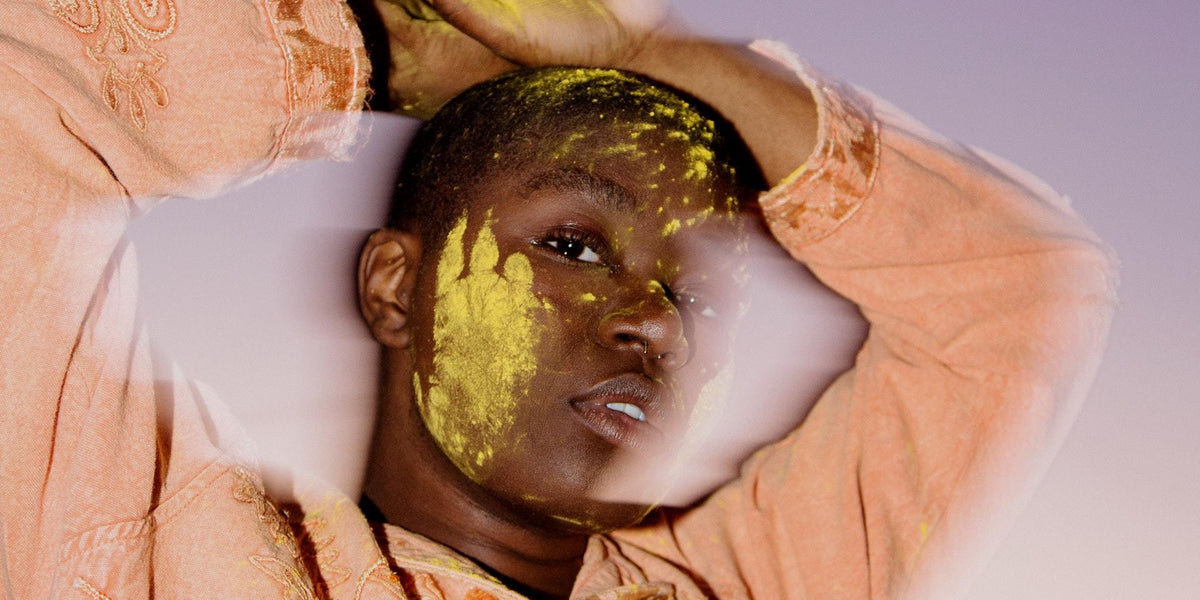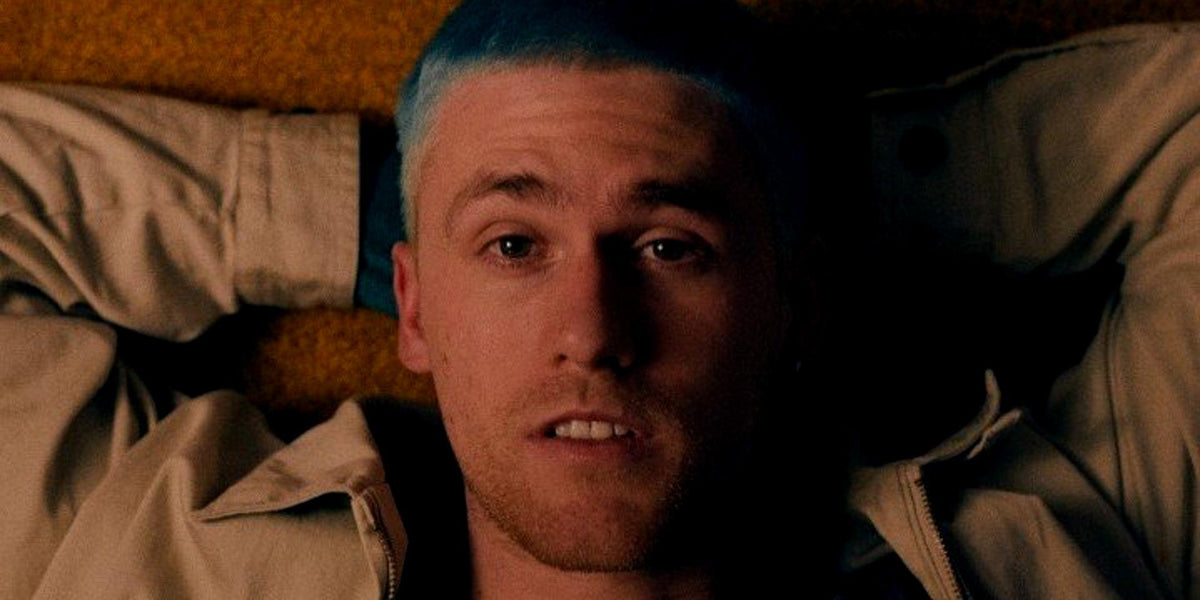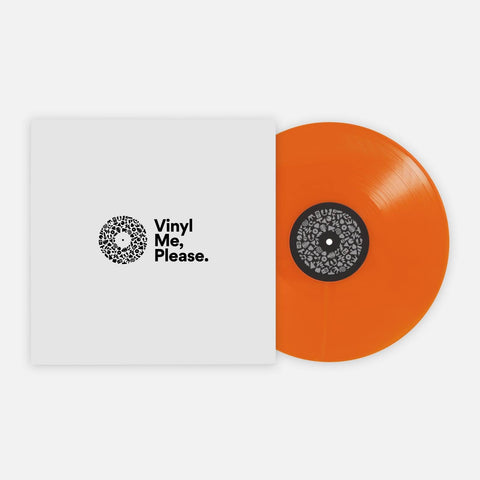VMP Rising is our series where we partner with up-and-coming artists to press their music to vinyl and highlight artists we think are going to be the Next Big Thing. Today we’re featuring All in One, the debut album from the up-and-coming Canadian band, Jaunt.
For the past six years, Toronto’s experimental pop mutineers, Jaunt, have been working on and anticipating the release of their first album. With new friends and an expanded roster of musicians, that dream finally came together. The band, which features several of the city’s well-avowed musicians, had created a richly imagined, fully developed project which felt emblematic of Jaunt’s realized sound and spirit — a kind of bright generativeness, which came from a wide rolodex of influences, including some pleasantly surprising hip-hop and new-age.
Their debut album, All In One, was released on April 16 to quiet fanfare from quarantined fans. When I spoke to three of the band’s members from their homes, over the Zoom technology we’re all trying to get used to, they should have been on tour instead. Their album is newsworthy enough, but in “these trying times,” Jaunt has become a case study. When an exciting, rising band has their main source of promotion and income cut off, where do they go? The band has some ideas in mind.
VMP: First off, I’m interested to know how you landed on All In One as an album title?
Tom Helliwell: The title came from the song "All In One," which seemed to set the tone for the other songs, and it’s generally about mindfulness and thinking. People seemed to like it, so it came to represent the rest of the album and its themes.
Pat O'Brien: Another layer to it, which was established later on, was [that] because these songs were made over a long period of time, and built specifically for this album—some songs we wrote a long time ago, and had kind of held them out for this project — it made sense to call it All In One in that it encapsulated years of work. It summed up the project in a literal way
How did you know which songs of yours would be appropriate for this album?
O'Brien: I guess we had tried recording some songs for this album over the years — “Bakers Moves” and “Callous Standard” being a couple of them. We’ve played them and refined them over the years, and never really felt like we’d done them justice in the past, so through years of playing them and refining them — either we put this out now or they’ll never come out. We’re moving past them. A song like “Baker’s Moves” is kind of an outlier for us now, we don’t necessarily make music like that anymore. It has that youthful flavor from a few years ago.
Do you think you’ve moved on from the sound of this album already?
O'Brien: I think it’s a developing sound, I don’t think it’s necessarily as though we’re striving to sound like one particular thing. We have a pretty broad taste in music that we all like and enjoy, so it’s all coming from different places. But it does seem like the music we’re working on now is maybe a little more rhythm-based and dancier.
Do you all come to this band individually, with different musical backgrounds, styles and tastes?
Caitlin Woelfle O'Brien: I think we’re all wildly coming from different backgrounds. I’m coming from a kind of musical theatre, pop, folk background.
Helliwell: Yeah, I came from that process of being in bands in high school, and learning to write songs with your friends. In my case also, trying to write songs as a songwriter. The same could be said for Daniel and Duncan and Nick, and Caitlin — you’ve been in the music community. So we’re all used to being around musicians and being with friends, where collaborations evolve organically in that ecosystem of creativity.
At what point do you guys mesh, since you come from such different backgrounds?
O'Brien: For Tom and I, it was just very organic, so I guess our common thread was us all just trying to find a common thread. When I moved to Toronto, Tom and I lived together, and I think that was a pretty formative time for developing a similar style and palette. From there, it’s been finding people who share similar sentiments, and I think it’s expanded because of that. Jaunt didn’t have start with an intention, we just find the commonalities among our differences
From an outsider’s perspective, the Toronto music scene seems to be particularly friendly. Is that actually the case?
O'Brien: That’s maybe the Canadian thing.
Woelfle O'Brien: If you bring someone from Hamilton to Toronto, they’ll go, ‘Ugh, this place is so pretentious and unfriendly,’ but you saying that makes sense because places like L.A. is nerve-wracking. I also had a hard time going to Germany as a friendly Canadian, to be honest.
What’s the arts funding like there, do you feel supported?
O'Brien: We, for this record, got particularly lucky. It’s not a secret that Canada has a great grant system. We don’t have a label or anything so we applied for this thing called the Juried Song Records grant which is a marketing and production and studio type grant. It allows you to fully develop a project and see it through.
Do you think the quality of your friendships affects the quality of the music?
O'Brien: Yeah, I think so. When you’re just surrounding yourself with session musicians, you’re missing out on the backstories and the shared experiences that come with playing music together. In the experience of our band, those things have served the end product, having gone through all of it together. It feels democratic.
With all the serendipity you had while making All In One, do you think your luck’s been balanced now with lockdown?
O'Brien: I would say so, yeah. We had planned this album for so long, but we weren’t going to delay this album coming out.
Woelfle O'Brien: We haven’t toured, we don’t have the clout to say “just wait.” But to be honest, I am losing it. I’m over it. I am thinking about how if it wasn’t for lockdown we would have been in L.A. now. I don’t want to complain, but I am going to say that this has been a hard hit for a musician and someone who’s in the gig economy. Now I don’t know what to do, I’m alone and I suffer from mental illness. But it’s a lot harder for a lot of people other than me.
O'Brien: When you’re a musician at this level, touring is one of the only things you have, so it feels difficult to give up the main vehicle you have for promoting your record. The reason I’m not dwelling on it is because I do feel good about the new music we’re working on.
Was the opportunity to tour important for you in order to cut your teeth as a live band?
O'Brien: We’ve done tours together before but this was going to be our first substantive U.S. and Canada-wide tour. They were going to be good shows.
All In One doesn’t seem to have those frustrations and sadnesses that you just expressed. It’s a super optimistic record. Is that because you were in better headspaces?
Woelfle O'Brien: The reason that All In One is so positive is because Tom doesn’t really write sad songs. If I had written any of the songs, it would have been heartbreak 101.
O'Brien: In my view, the songs are presented with a positive outward mood but some of the lyrical subject matter — I think Tom’s good at writing songs that can be interpreted in different ways — and I think if you’re feeling sad, you can read them that way. But you can also interpret them as optimistic, as much as they’re realistic.
Woelfle O'Brien: I think they’re also pretty philosophical. The songs are just true to the human experience, so it’s not really about sadness or depression or anything in that realm.
Several of the songs are about writing songs themselves, and how that process itself fulfils you in a positive way.
Helliwell: I think writing songs about writing songs, or thinking about creative productivity, is often a reflection of someone’s mental state. So you can do things that you’re struggling with by creating, or giving evidence of your struggle. Your evolution comes out in what to create, so it’s kind of like feeding itself.
Woelfle O'Brien: Tom, I think you’re really philosophical. Like, lowkey. (mock valley girl voice) I’m secretly really philosophical
When the world opens up again, who you most like to support on tour?
Woelfle O'Brien: Lana Del Rey. Clairo.
O'Brien: Right now, it’d be Standing on the Corner
Helliwell: Whitney, I like that record they put out
What are your future ambitions, more generally?
O'Brien: Well, we’re working on new music. Because Toronto is so expensive a city to live in, we all have jobs and have to work all the time. With quarantine, none of us can really work, so I’ve had more time to focus on music than I have in the last, like, five years. So it’s been good and productive in that sense. We’re trying to figure out what we want to do moving forward, but I think we’re rolling with the punches and doing what everyone else is, while trying to do stuff that’s authentically us in the midst of all this — having to be a band that just does live streams for the next two years.
Emma Madden writes about music, music fandom, and other pop culture. She lives in Brighton, UK, and thinks that doggies are great.
Related Articles
Join the Club!
Join Now, Starting at $36Pages







